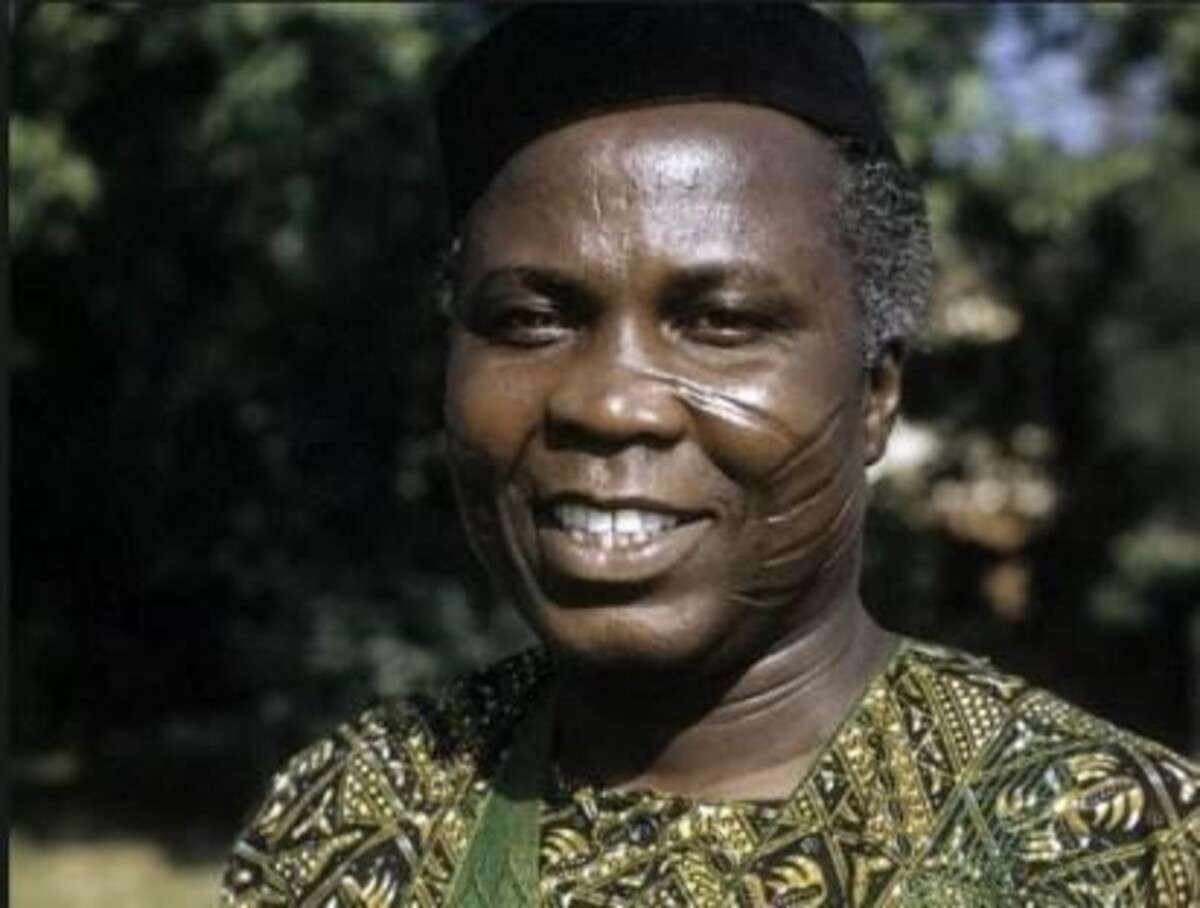Samuel Ladoke Akintola was born into a wealthy, courageous, and brave family on July 6, 1910, Akintola Akinbola was his father, and Akanke was his mother.
Table of Contents
Samuel Ladoke Akintola: Early Years and Education
Samuel Ladoke Akintola was a Baptist Lay Preacher, a conservative Yoruba from Ogbomoso, a lawyer, writer, school teacher, railway worker, linguist, clever, intellectual, and humorous.
Samuel emigrated to Minna, present-day Niger state, with his family in 1914, where he received his early education at CMS Minna. The Akintola family was known for its military history and considerable wealth. His father was caught up in the 1918 Adubi War in Abeokuta while traveling to Lagos to buy textiles.
From 1922 to 1925, Samuel was sent back to Ogbomoso to live with his paternal grandfather. He continued his education at the Baptist Day School. He improved his English, Yoruba, Nupe, and Hausa.
Samuel Ladoke Akintola was sent to Baptist Academy in Lagos as a tutor of General Science, Biology, and Bible knowledge after completing his elementary education in 1925 at Baptist College, Ogbomoso.
Samuel worked at the Baptist Academy as a teacher and House Master for 12 years, from 1930 to 1942.
He registered from the Baptist Academy in 1942 to join the Nigeria Railway Company. He worked briefly before moving to the journalism profession by joining Ernest Ikoli’s Nigerian Daily Service Newspapers in 1942. He got promoted steadily to the editor’s position.
Marriage and love
Samuel Ladoke dated Faderera Awomolo, a sister of one of his Baptist College classmates. She was a trained nurse at the Baptist Hospital in Ogbomoso. Faderera’s father, a police officer from Igbajo, an Ijesha-speaking group in today’s Osun state, shared Faderera’s strong opinions.
In 1935, Faderera married Samuel. Modele, Yomi, Abimbola, Ladipo, and Olatokunbo were their five children.
Political Career
Samuel returned to Nigeria in 1949 after training as a lawyer in the United Kingdom. He joined forces with other Nigerians from the Western Region to form the Action Group (AG). Chief Obafemi Awolowo led the group.
He was the Parliamentary Leader/Leader of the Opposition Action Group in the Nigerian House of Representatives as the deputy leader of the AG. He did not serve in the regional government of the Western Region led by Obafemi Awolowo as the premier, but he was the leader of the Opposition Action Group in the Nigerian House of Representatives. Samuel Ladoke was the Minister of Health and later the Minister of Communications and Aviation at the federal level.
The Action Group Crises
A disagreement between Chief Samuel Ladoke Akintola and Chief Awolowo arose over the course of the party’s political alliance, the acceptance of democratic socialism as a party platform, and the fight for party hegemony. Samuel Ladoke opposed Awolowo’s refusal to join the coalition government.
Because the Igbo-controlled NCNC had joined the government and the AG had not, Akintola believed that the Yoruba people of the West had lost their dominant role in Nigeria’s industry, universities, and administration to the Igbo people. He also opposed the party’s decision to embrace democratic socialism, arguing that it was a conservative ideology. Chief Awolowo accused Samuel of attempting to depose him as the party’s leader.
Emergency declared in 1962
In May 1962, the Western House of assembly wanted to replace Samuel, then a crisis exploded within the party after a “vote of no confidence” was passed on at the party conference. This crisis was between Samuel’s supporters and those that were against him. The AG party split into two factions leading to several crisis in the Western Region House of Assembly that led the Federal government headed by Prime Minister Sir Tafawa Balewa, to declare a State of Emergency in the Western Region and the appointment of Chief (Dr.) Moses Majekoduni the Federal Minister of Health, as Administrator.
Eventually, Samuel Ladoke was returned to power on January 1, 1963. In the 1965 general election, Samuel, officially, won his place as premier, not as a member of the Action Group, but as leader of a newly established party named the Nigerian National Democratic Party (NNDP), which was a faction in alliance with the ruling Northern People’s Congress (NPC).
Death and Lasting Legacy
A team of Nigerian soldiers led by captain Emmanuel assassinated the military truck and Samuel Ladoke Akintola at the premier lodge in Ibadan in the early hours of January 15, 1966.
On January 23, 1966, he was buried in his hometown, with the entire community wearing a sad, solemn, and mournful look, marking the end of the life of an Aare Ona Kakanfo who had fought a war with his tongue, pen, and strength.
While still the Premier of the Western Region, Samuel was responsible for establishing the University of Ife (now Obafemi Awolowo University Ile-Ife) in 1962 and the establishment of the Cocoa House in Ibadan in 1965. He was also involved in the construction of the Premier Hotel and other Western Region landmarks. In his honor, the Ladoke Akintola University of Technology (lautech) was founded. Other numerous places in the country were also named after him.


Nice one
Wow!!! a wonderful article that remind me of my great premier
A beautiful piece. Keep it up
Insightful!
This is wonderful.
Weldone Oluwatosin
A great article that reminded me of Samuel Ladoke
“this article gingers me and make me see a better tomorrow for Nigeria and Africa at large”
Always good to live a gud and awesome life.
This is nice
Amazing write up. Keep the pen bleeding
#Exquisite!
Nice one